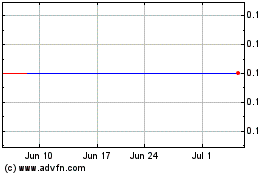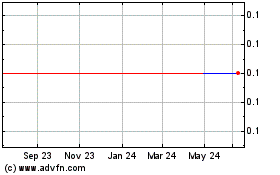Sears Creates Stir As It Casts Doubt About Its Future -- WSJ
March 23 2017 - 3:02AM
Dow Jones News
By Anne Steele
Sears Holdings Corp.'s raised doubts in a securities filing
about its ability to keep operating after seven years of losses,
sending the retailer's share price tumbling and spooking some of
its landlords.
In its annual report released late Tuesday, the Kmart and Sears
owner said past operating results indicate "substantial doubt
exists related to the company's ability to continue as a going
concern." The language is typically used when there are doubts
about the business' ability to meet obligations for the next 12
months. Sears quickly added that it is "probable" that cost cuts,
asset sales and other actions would mitigate its problems.
The warning -- the first such for the company -- is the latest
stumbling block for Sears, whose stock had dropped 39% in the 12
months through Tuesday. The shares fell 12% to $7.98 on
Wednesday.
In a blog post Wednesday, Sears finance chief Jason Hollar
sought to assuage investors, saying the disclosure was in line with
regulatory standards and didn't reflect management expectations for
the business's near-term health.
"We are a viable business that can meet its financial and other
obligations for the foreseeable future," he said, adding that the
company's auditors, Deloitte & Touche LLP, had given Sears an
unqualified audit opinion, meaning it wasn't expressing doubt about
the company's ability to meet obligations. A Deloitte spokesman
declined to comment.
Mr. Hollar said the going-concern note reflects the company's
2016 performance, when Sears lost $2.22 billion and ended the year
with $4.2 billion in debt. "While historical performance drives the
disclosure, our financial plans and forecast do not reflect the
continuation of that performance," he said.
Sears's statements may have been triggered by an accounting rule
that recently took effect requiring all companies to evaluate and
disclose whether there is any significant doubt about the ability
to stay in business. Outside auditors were already required to do
such an assessment of their clients, but there was no requirement
that a company's management do its own evaluation.
The Financial Accounting Standards Board, which sets accounting
rules for U.S. companies, enacted the requirement in 2014, and it
went into effect for most companies at the end of 2016. At the
time, the FASB said the rule was needed because there were
significant differences among companies in how quickly and
thoroughly they disclosed any risks to their ability to remain a
going concern.
Sears said in its annual report that the new rule was effective
for the company as of the end of its latest fiscal year, which
ended in January.
Retailers at large have fallen out of favor with investors, and
in the case of Sears they worry that its strategy of selling assets
to fund losses has its limits. The company, which last month posted
its seventh consecutive annual loss, has sold off large swaths of
its vast real estate holdings and its Craftsman brand to stay alive
while Edward Lampert, its controlling shareholder and chief
executive, works on a turnaround plan.
Earlier this month The Wall Street Journal reported Sears
lenders have hired lawyers in anticipation that the company will
struggle to comply with its borrowing terms.
On Wednesday, some shopping center landlords said they were
alarmed by the disclosure. "It has obviously spooked everybody,"
said Bill O'Connor, chief executive of O'Connor Capital Partners, a
real-estate investment and development firm that has a few Sears
stores in its portfolio.
Shares of retail real-estate investment trusts slumped in
Wednesday trading after the Sears disclosure. Among the decliners,
losing more than 2%, were Pennsylvania Real Estate Investment
Trust, or PREIT, CBL & Associates Properties Inc., Macerich Co.
and GGP Inc. Mall operators stress that department-store closures
have a varying impact in different locations. Real-estate
executives said lower-tier malls are likely to take a bigger hit if
Sears closes stores.
Philadelphia-based PREIT said it is in discussions with
potential tenants to replace some department stores, including
Sears. The REIT, which has a portfolio of 24 properties, said it
has pared Sears and Kmart stores in its stable to 10 from 27 in
2012. It is currently renovating four former Sears stores and one
former Kmart.
In the blog post Wednesday, Mr. Hollar pointed to moves that
Sears has made to improve its financial position -- including
amending its credit lines, beginning a cost-saving program and
selling assets -- as evidence the retailer is making progress with
the planned turnaround.
--Michael Rapoport and Esther Fung contributed to this
article.
Write to Anne Steele at Anne.Steele@wsj.com
(END) Dow Jones Newswires
March 23, 2017 02:47 ET (06:47 GMT)
Copyright (c) 2017 Dow Jones & Company, Inc.
Sears (CE) (USOTC:SHLDQ)
Historical Stock Chart
From Mar 2024 to Apr 2024

Sears (CE) (USOTC:SHLDQ)
Historical Stock Chart
From Apr 2023 to Apr 2024
